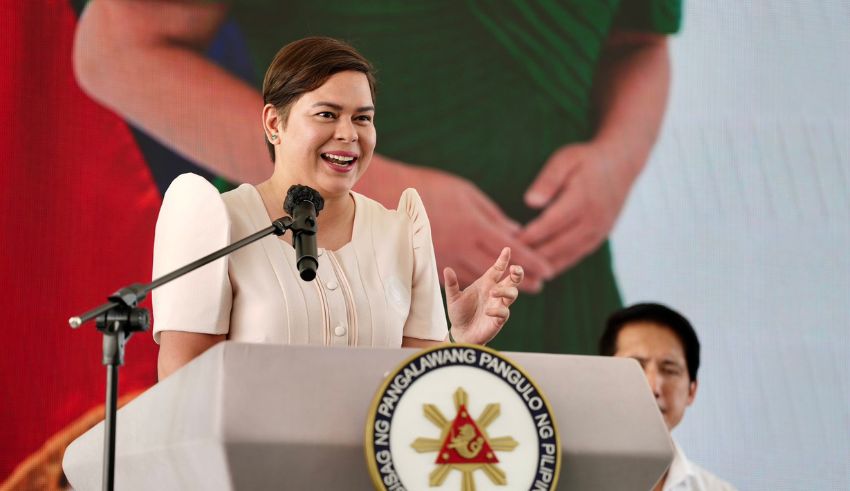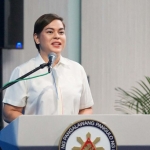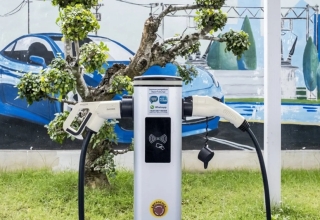
Surprisingly, Vice President Sara Duterte-Carpio recently said she will not be attending the State of the Nation Address (SONA) this year. Her absence begs issues regarding protocol, political strategy, and administrative dynamics since she is the second highest official in the Philippines.
The choice
Duterte-Carpio has listed a number of reasons for her SONA skipping decision. Among these is her assertion of past obligations aligning with the SONA calendar. Although some may find this justification fair, detractors contend that, especially those in the highest levels of government, all elected officials—including those in the SONA—have great duty. This begs the issue of whether such obligations can really take front stage over a national event of significance.
Viewers also conjecture that Duterte-Carpio’s absence is deliberate. Separating oneself from President Rodrigo Duterte’s government could help her to position herself for a presidential run in future. Political experts keenly monitor Sara Duterte’s calculated decisions as her father’s divisive policies and acts have earned both accolades and criticism. Her choice to forgo the SONA could be an attempt to create an individual political identity apart from her father’s shadow, so appealing to a larger voters base.
Reactions and Connotations
Supportive Vibrances
Emphasizing her independence and readiness to give other obligations top priority, several supporters of Duterte-Carpio praise her choice. They contend that going to the SONA is not required and that her absence does not lessen her vice presidential responsibility. These people consider her choice as a representation of her autonomy and capacity to make decisions depending on her own priorities and judgment.
Critique
Critics, however, are not as forgiving. They note that every high-ranking official has a constitutional obligation derived from the SONA. Ignoring it compromises government unity and conveys a message of rebellion. They also wonder whether Duterte-Carpio’s absence is a deliberate attempt to separate herself from her father’s divisive views or if it is really due to scheduling conflicts. Such an action, they contend, would be seen as a lack of dedication to her obligations as vice president.
Political and Legal Setting
The Kigali Amendment
International relations have been rife with discussion about the Kigali Amendment to the Montreal Protocol, which seeks to phase out hydrofluorocarbons (HFCs). Given her prior support of climate action, Duterte-Carpio’s absence from the SONA could affect the Philippines’ position on environmental concerns. The amendment affects world environmental policy broadly, and the Philippines’s environmental diplomacy depends on its participation in such international agreements. Her attendance at the SONA may have been a chance to restate the nation’s dedication to international environmental agreements, therefore strengthening its global reputation as a proactive partner in the slowing down of climate change.
Children’s Labor Policies
Another area impacted by her absence is rules on child labor. The Philippines struggles to enforce rules against child labor. Strong leadership from all arms of government is sorely needed, and advocates fear that without it, advancement in this field would halt. Duterte-Carpio has before shown a dedication to tackling child labor problems, therefore her absence could indicate a lack of administrative attention on this important social concern. The dearth of robust representation at such a momentous occasion could be seen as evidence of a declining will of the government to address urgent social issues.
US Elections and Regional Dynamics
Duterte-Carpio’s absence from the SONA raises concerns about the Philippines’ alignment in the evolving global scene as the nation keeps tight connections to the United States. Regional dynamics are shifting with the approaching US elections, hence her absence could be understood in several ways. Given Duterte-Carpio’s choice to boycott the SONA, which would be perceived as reflecting more general political strategies and alignments, the foreign policy of the Philippines—especially its stance on important international issues—may come under examination. One could interpret her absence as a sign of changing alliances or a reassessment of the foreign policy priorities for the Philippines.
Keep Reading
Public view and economic policies
Additionally a forum for talking about future plans and economic policies is the SONA. Absence of Duterte-Carpio could affect public opinion on the economic agenda of the government. The SONA should highlight important themes such economic recovery following the epidemic, job creation, and poverty reduction; her absence would cause questions regarding the cohesiveness and dedication of the government toward these objectives. The economic ideas presented during the SONA call for the cooperation and support of all parts of government, hence the absence of a key person like the Vice President could be interpreted as evidence of administrative conflict.
More General Political Reactions
Beyond quick policy issues, Duterte-Carpio’s absence has more general political consequences. One can read her choice to forego the SONA as a major political statement reflecting her opinion on modern government and maybe indicating her future intentions. Political experts and the public’s analysis of her action may shape public perspective and voting behavior in next elections. It might also influence her interactions with other political personalities and institutions, therefore changing the political environment of the Philippines.
Final Thought
Skipping the SONA by Vice President Sara Duterte-Carpio raises complicated legal, political, and strategic questions. Her destiny politically as well as the course of the Philippines will be shaped by her next actions as the country observes. It remains to be seen whether her absence makes a calculated risk or a statement. Her choice has ramifications for public policy, foreign relations, and fundamental components of government going beyond simple procedure. The acts of the leaders of the Philippines will be under great scrutiny as it negotiates these stormy times; the results of these choices will be felt all throughout the country and even outside. The country watches with bated breath to see how this choice will perform in the complex ballet of Philippine politics and policy.


























